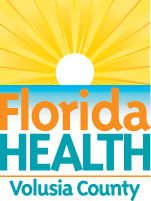It's a New Day in Public Health.
The Florida Department of Health works to protect, promote, and improve the health of all people in Florida through integrated state, county, and community efforts.
DOH-Volusia - Outside Generators Blamed for Several Storm-Related Carbon Monoxide Poisonings in Volusia
October 31, 2016
"Generators should never be used inside an enclosed space," explained Dr. Paul Rehme, DOH-Volusia disease control director. "However using a generator outside can be just as dangerous. If it's outside but too close to an opening - such as near an AC unit, vents, doors and windows, the generator’s toxic gas can cause illness or death."
The exposures investigated occurred between October 7 and October 10. Nine carbon monoxide poisonings were confirmed. Another four were suspected. One person was killed by improper generator use. In all of these cases, the carbon monoxide poisoning was unintentional and due to use of generators during power outages caused by Hurricane Matthew, Rehme explained. The youngest person affected was a one year old. The oldest was 77.
Carbon monoxide detectors alerted one family during the night. The alarm may have saved their lives and is a critical piece of safety equipment, Rehme said. Carbon monoxide cannot be seen or smelled, and fumes can accumulate quickly.
"Follow the directions that come with the generator," Rehme said. "We cannot emphasize that enough. That includes proper generator placement even when it’s outside the home or office."
DOH-Volusia recommends these precautions to help prevent carbon monoxide poisoning:
Do not burn charcoal or gas grills inside a house, garage, vehicle, tent or fireplace.
NEVER use a generator indoors, including in homes, garages, basements, crawl spaces, and other enclosed or partially enclosed areas, even with ventilation. Opening doors and windows or using fans will not prevent CO build-up in the home.
ALWAYS locate the unit outdoors on a dry surface, away from doors, windows, vents, and air conditioning equipment that could allow CO to come indoors. Follow the instructions that come with your generator.
Install battery-operated CO alarms or plug-in CO alarms with battery back-up in your home, according to the manufacturer’s installation instructions. The CO alarms should be certified to the requirements of the latest safety standards for CO alarms (UL 2034, IAS 6-96, or CSA 6.19.01).
Test your CO alarms frequently and replace dead batteries.
If you start to feel sick, dizzy, or weak while using a generator, get to fresh air immediately.
If you have a poisoning emergency, call your nearest Florida Poison Information Center at 800-222-1222. If the victim has collapsed or is not breathing, call 911 immediately.
###
About the Florida Department of Health
The department works to protect, promote and improve the health of all people in Florida through integrated state, county and community efforts.
For more information about the Florida Department of Health please visit www.FloridaHealth.gov.




Connect with DOH